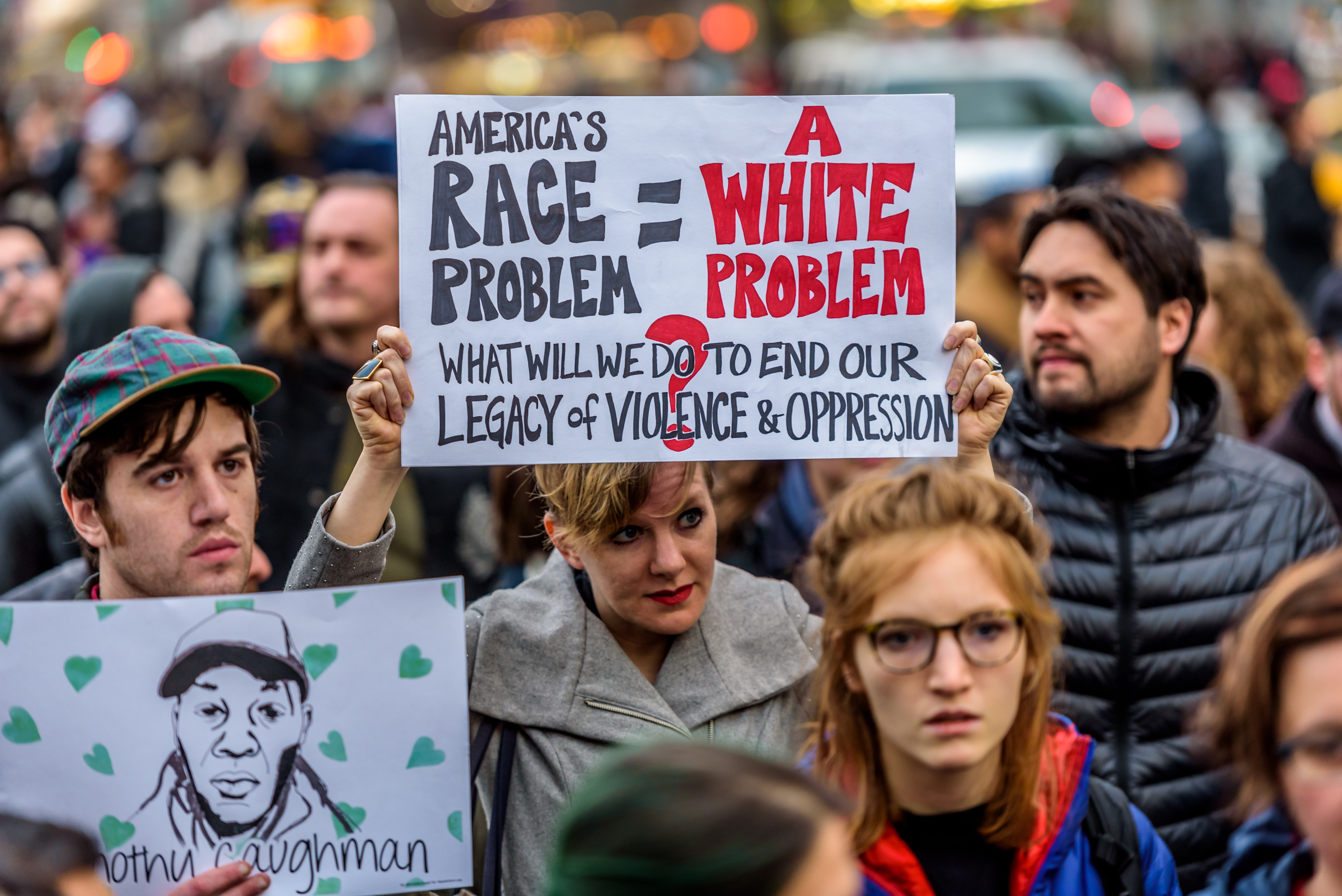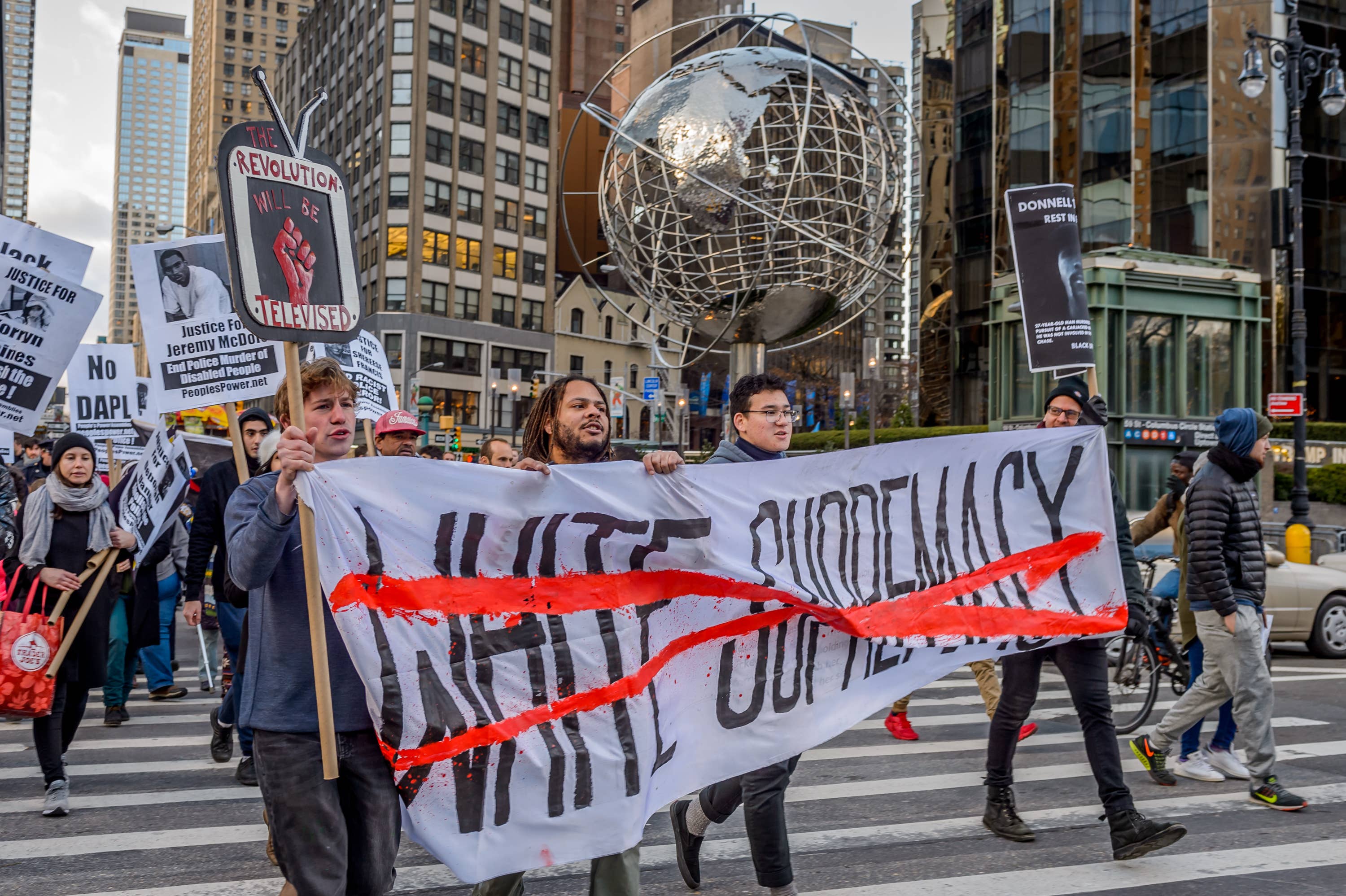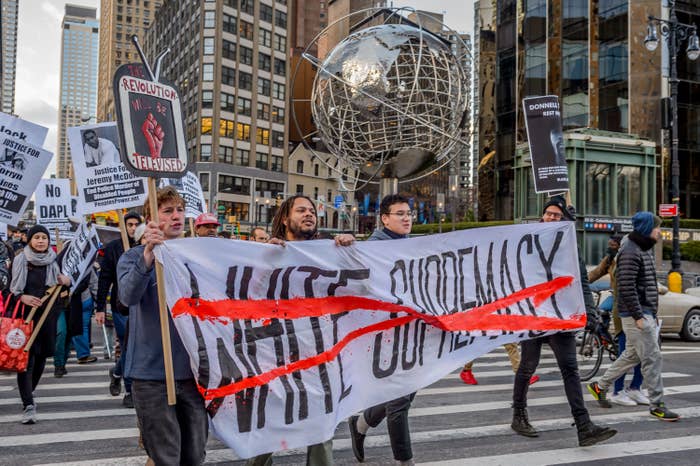
When white people learn I do racial justice work is, the response I often get is “That’s great, but I stay away from race issues because I don’t think it’s my place to speak about it.” Given that white people create and maintain white supremacy, this view is simply not okay. We all have a responsibility to combat racial inequality, particularly in the current political climate.
White people forcibly brought Black people to America through the trans-Atlantic slave trade. Since slavery ended, we have maintained white supremacy through systemic discrimination like housing and education segregation, income inequality and mass incarceration. Society didn’t just happen to be structured to favor white people—that’s what we built it to do. So the onus is on us to rebuild the foundations of society to give all people an equal chance—or at least do everything in our power to do so.
There are plenty of problematic approaches white people can take when engaging on race (which I’ll get into later), so it's crucial for us to take leadership cues from people of color and put extra thought into our work. Still, fear of saying or doing the wrong thing cannot be an excuse for disengaging. We need to try our hardest, knowing mistakes are inevitable, rather than simply allowing the status quo to stand.
Why do white people need to combat white supremacy?
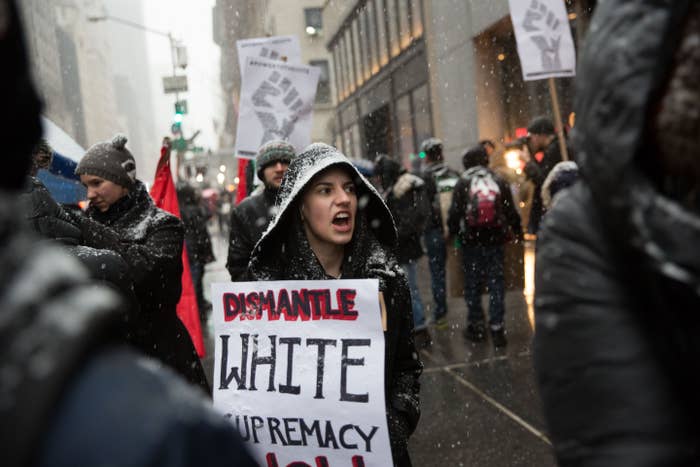
What does white racial justice activism look like?

Showing Up for Racial Justice (SURJ), a white-led activist organization which has chapters across the country, provides a model for white people who want to combat racial inequality. In 2015, national media ignored the gruesome death of Natasha McKenna, a Black mother who died in Fairfax County Jail after guards shackled and repeatedly tasered her in the midst of a mental health crisis. To fill the void, SURJ Northern Virginia (NoVa) organized a campaign calling for accountability and attention to McKenna’s killing.
“We try to take cues from [people of color groups] and also not give them more labor. So we plan stuff on our own, we don’t wait for them to ask,” explains Karen Wolf, an organizer with SURJ NoVa. “But when [our partner organizations] do ask, we will do everything within our power to fulfill the requests.”
SURJ NoVa, a volunteer led and donation based organization, contribute half of their donations to organizations led by people of color. Much of their work focuses on monitoring policing in Fairfax County and calling for accountability when misconduct or violence occurs. They campaign against confederate relics, partnering with a local group of students to change the name of J.E.B. Stuart High school, which was named after a confederate general. They also have a project called Deep Canvassing, where they go door-to-door to change individual white views on race by discussing the topic of reparations (the idea that the government should compensate African Americans for their oppression during slavery).
How can white people participate in multiracial coalitions to combat racism?
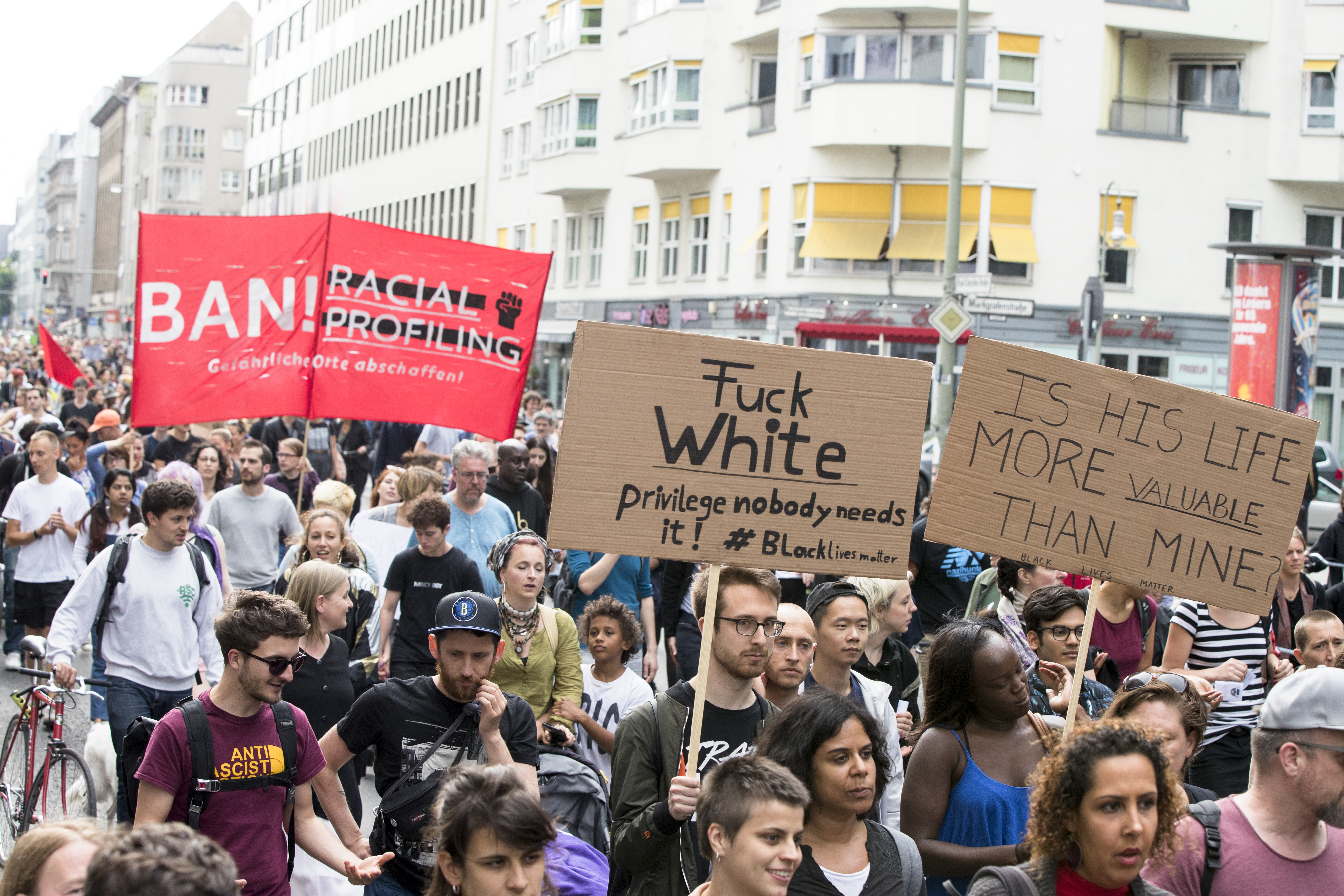
It’s important that white people participate in multiracial activism, which is key to bringing in a wide range of people to fight white supremacy in our diverse society. Multiracial coalitions can also be effective at creating change on race issues that intersect with other forms of oppression, such as income inequality, misogyny, homophobia and islamophobia.
“We believe that not one community, not one identity, not one constituency has the keys to the castle and the solution to figuring out how we’re going to bring about the transformation that we seek,” explains Kate Shapiro, a white activist who is the membership director for Southerners on New Ground (SONG), a multiracial organization combating racism and homophobia. “We are in a region of red states... so we spend a lot of our work looking to transform the hearts and minds of ourselves, each other and our neighbors.”
“At the beginning of this year, we identified that the fight to end cash bail was one that we wanted to sink our teeth into, because we felt it was really affecting our members,” says Jade Brooks, a regional organizer with SONG, who is also white. SONG has bailed out 115 Black individuals from jail this year as part of the Movement for Black Lives’ National Bail Out Coalition.
While the national bailouts focus on Black people, who are most harmed by the criminal justice system, they also have the potential to bring more populations into the movement against mass incarceration. “Poor people in general are affected by cash bail and by fines and fees set by getting arrested,” Jade says. “So we’re thinking about the ways that this demand also impacts poor and working class white people, and how that could be a way to bring more people into the fight.”
How can you be an ally?
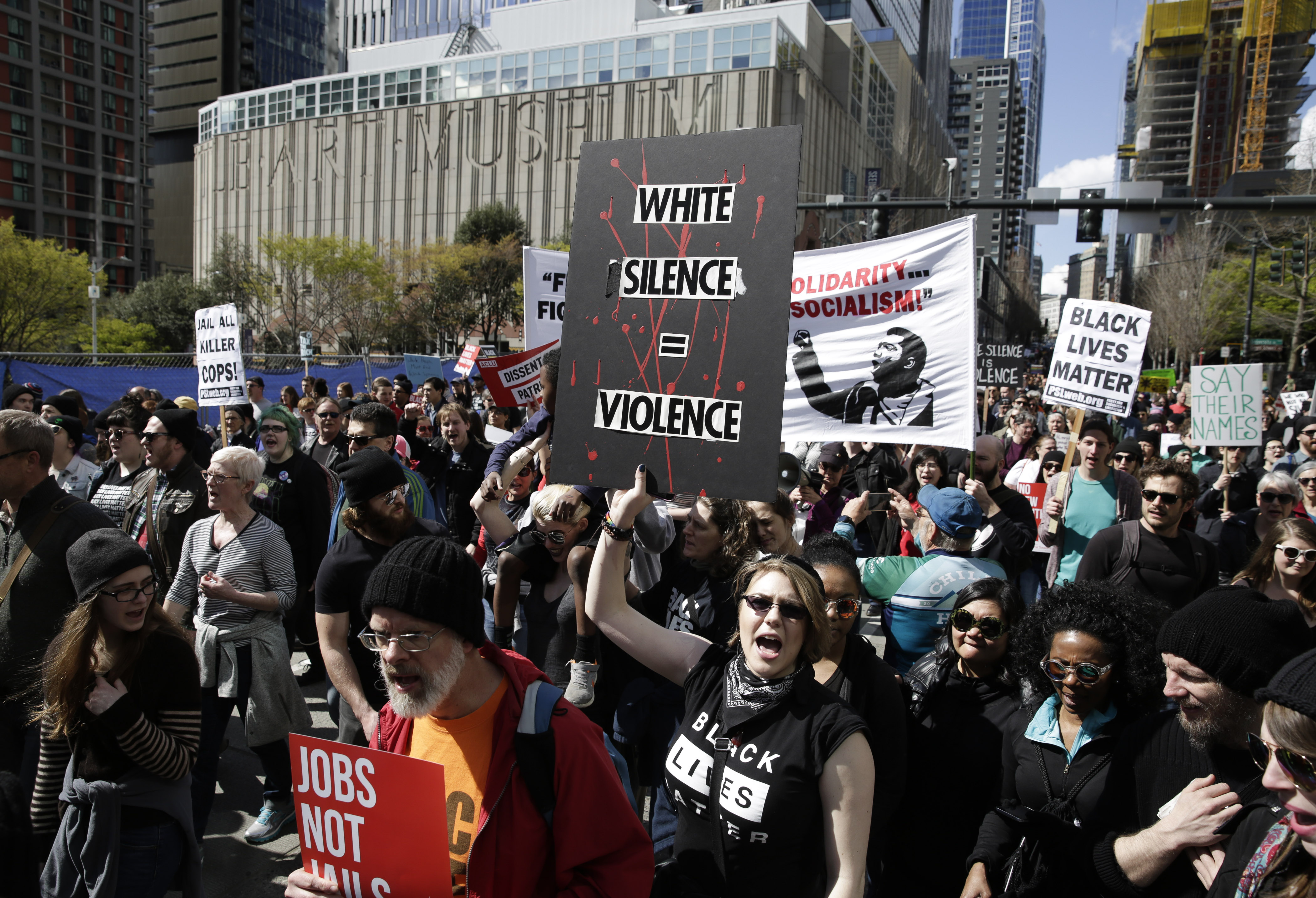
“Black Lives Matter believes in allyship. We believe in working alongside people who have demonstrated a commitment to significantly reducing anti-blackness and who set their egos aside to make space for Black leadership,” says Shanelle. “We also believe white people are responsible for teaching and leading other white people to a less racist, more democratic way of being, and to use whatever privilege they have to make inroads for power building by Black communities.”
There are many ways to get involved. Here are some suggestions from the activists I spoke to: You can start with educating yourself and having conversations on the harms of racial inequality with other white people. For those with financial resources, monetary donations to racial justice organizations are great. Organizing in multiracial coalitions and pulling more committed white people into the movement are also effective ways to use white privilege to push for systemic change.
White people have a responsibility to change the racist outlooks held by other white people. “Everyone seems to have a racist uncle. Your racist uncle isn’t going to listen to random Black strangers on Facebook,” says Karen. “But he might listen to you, and even if he doesn’t, your cousins heard what you had to say.”
What pitfalls should white activists avoid?
